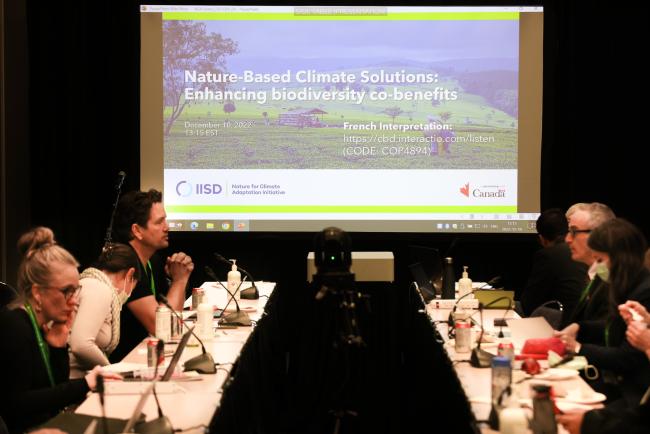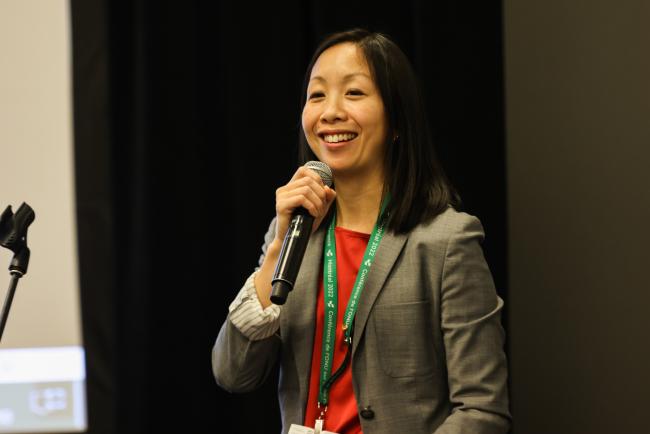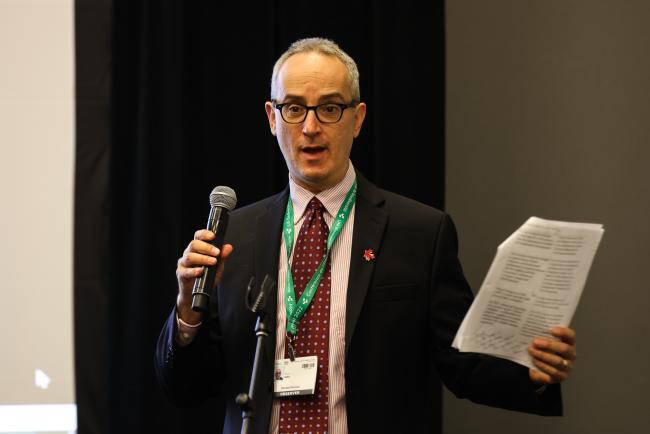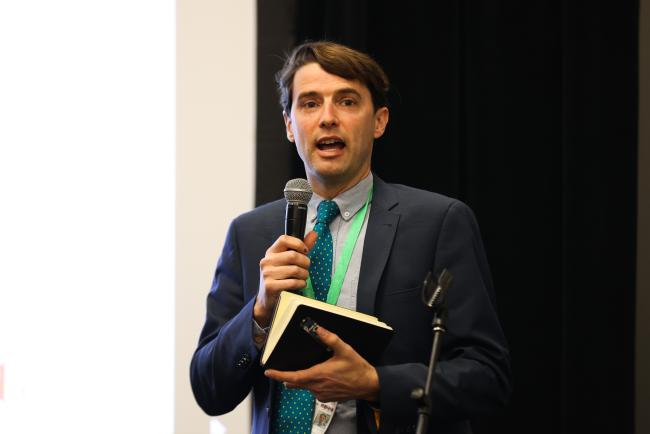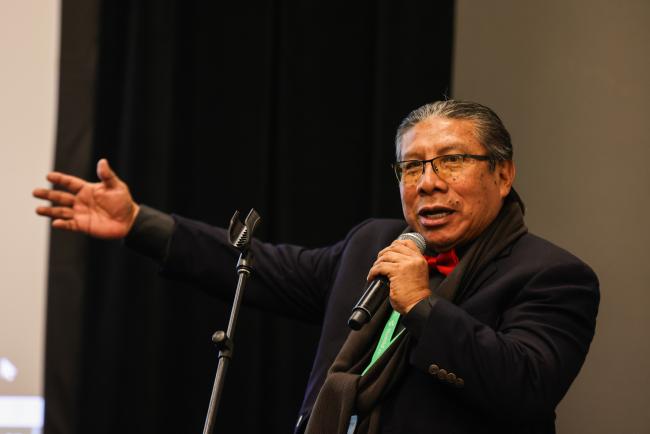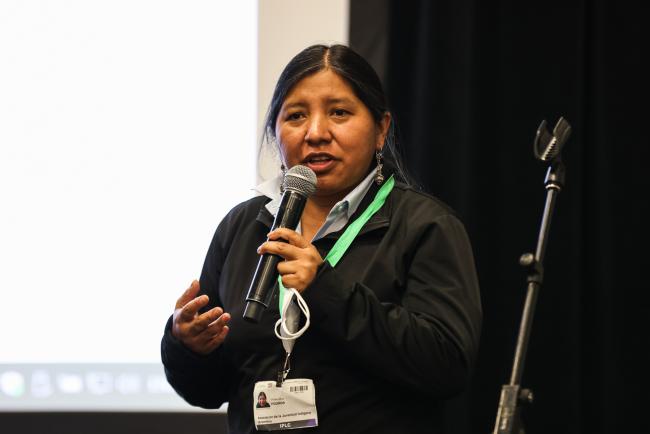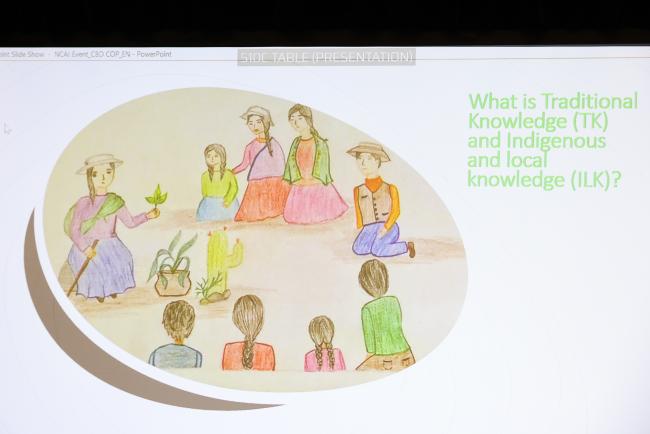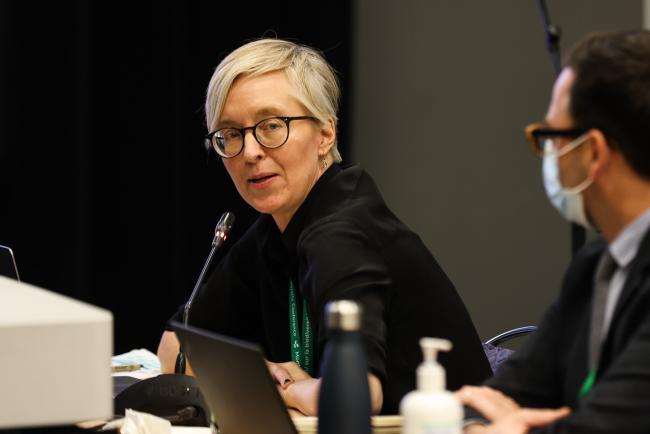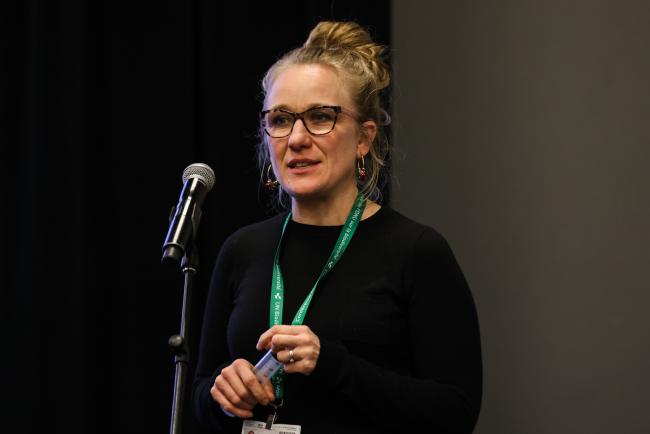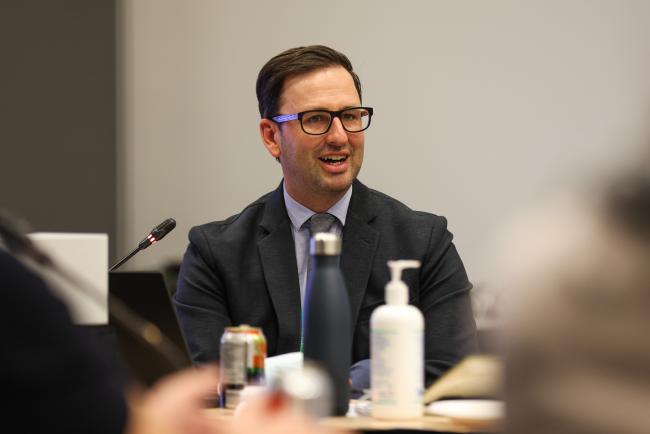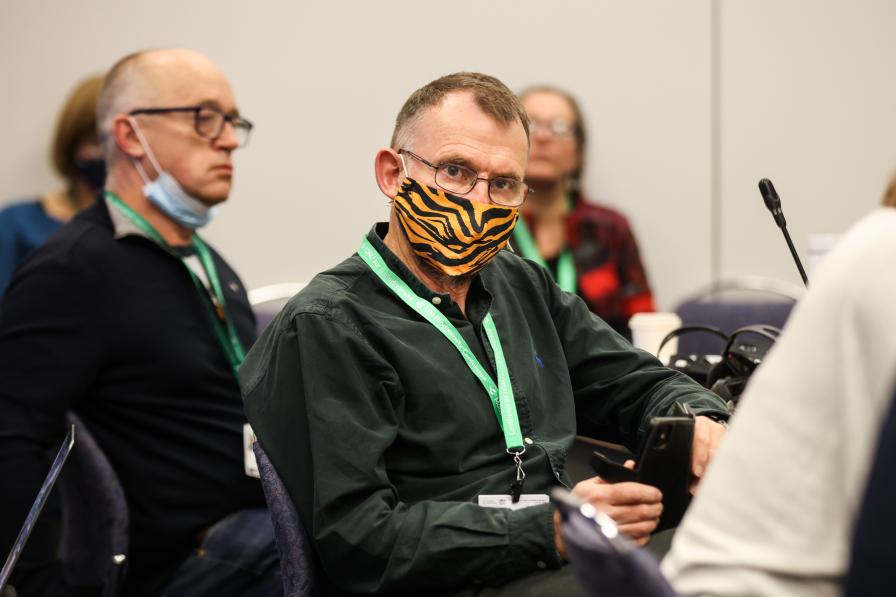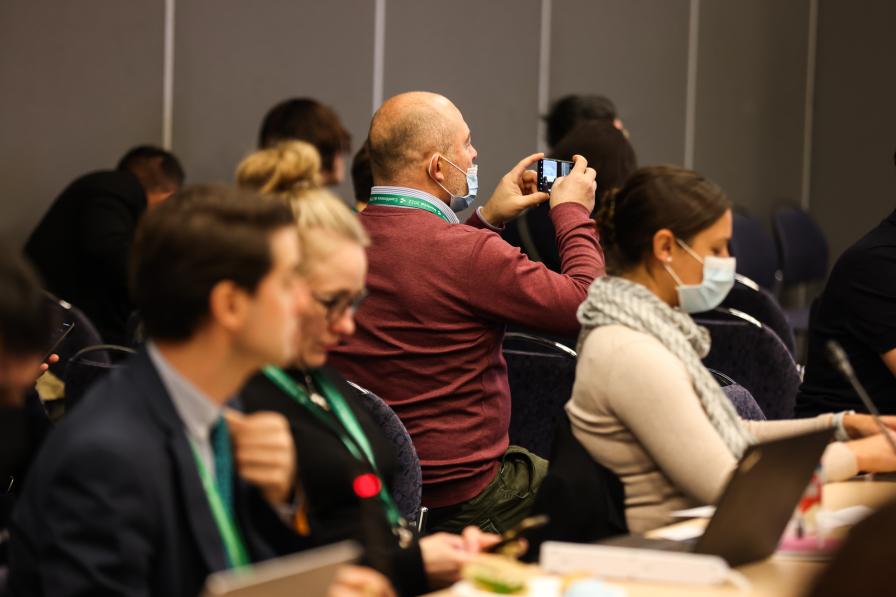About
Speakers examined how to generate measurable, scalable biodiversity co-benefits from nature-based climate solutions—projects that conserve, restore, and sustainably use biodiversity and ecosystems while inclusively helping people adapt to the adverse effects of climate change.
Nature-based climate solutions (NBCS) that conserve, restore, and sustainably use biodiversity and ecosystems hold promise for helping people adapt to the adverse effects of climate change. At the same time, global biodiversity loss and ecosystem degradation threaten the capacity of nature to provide essential adaptation services. The Nature for Climate Adaptation Initiative (NCAI)—funded by Global Affairs Canada (GAC) and implemented by the International Institute for Sustainable Development (IISD) in partnership with a global community of practice on nature-based solutions—enhances capacity for implementation of NBCS, with a focus on rights-based, inclusive approaches.
Moderated by Veronica Lo, IISD, this side event examined how to generate measurable biodiversity co-benefits through NBCS and, following on from a series of workshops convened by IISD and GAC, to unveil the challenges and opportunities in scaling-up NBCS, addressing the core themes of social inclusion, gender equity, and biodiversity co-benefits.
Celine Heinbecker, GAC, noted that Canada has increased its funding from USD2.65 billion to USD5.3 billion for biodiversity, and stressed the importance of inclusivity, a feminist economic approach, and the importance of ensuring equality in taking bold actions for nature, especially for Indigenous Peoples and women. She mentioned that USD300 million has been earmarked for building partnerships for “progressing biodiversity at the right scale,” with a specific focus on sub-Saharan Africa. She noted that a remaining USD50 million is earmarked for building partnerships for climate resilience between Indigenous Peoples in Canada and in developing countries, in line with Global Affairs Canada’s Action Plan on Reconciliation with Indigenous Peoples – 2021-2025.
Kerry Max, GAC, noted the need to demonstrate the importance of building capacity and knowledge to establish inclusive and efficient nature-based solutions (NbS) in both the philanthropic and private sectors. He mentioned Canada’s contribution to building an NBCS and Biodiversity Community of Practice to raise awareness on the role of NbS for climate change resilience and adaptation, especially to strengthen the capacity of organizations in developing countries to apply international best practices in this domain. He also underscored Canada’s emphasis on integrating gender equality and a rights-based approach that considers local livelihoods and ecosystem-based approaches.
Tristan Tyrrell, Convention on Biological Diversity (CBD) Secretariat, highlighted increasing international enthusiasm regarding nature’s role in climate change mitigation and adaptation. He noted new undertakings to address climate change and biodiversity together, such as in the recently adopted Voluntary Guidelines for the Design and Effective Implementation of Ecosystem-based Approaches to Climate Change Adaptation and Disaster Risk Reduction. Pointing to ongoing negotiations over the terms “nature-based solutions”, “ecosystem-based adaptation” and others, he confirmed the intention is to recognize the interlinkages, and called for prioritizing implementation without further delay, with everyone’s participation and ample finance.
Onel Masardule, Executive Director, Foundation for the Promotion of Indigenous Knowledge, spoke on the role of Indigenous traditional knowledge for adaptation and resilience to climate change, drawing on his knowledge as a member of the Guna tribe in Panama. He stated that Indigenous knowledge includes adaptation strategies to address climate change. He explained that “natural resources are our parents” and that “for Guna culture, all things in nature, even rocks, are living.” He stressed that Indigenous knowledge systems, among others, allow actions to be adjusted and modified in response to changes in the environment, explaining that the Guna people “change production systems when animals react to different climate phenomena.”
Eugenia Arguedas Montezuma, Ministry of Environment and Energy, Costa Rica, presented on enhancing biodiversity co-benefits from urban NbS, to work towards “BiodiverCity”. She described this as efforts to strengthen local work through inter-urban bio-corridors and a “Green City” initiative, focusing on strengthening a positive bond between nature and human welfare. She said lessons learnt include, inter alia, involving local communities and local “champions;” standardizing definitions; building capacity on measuring and monitoring tools; avoiding duplication; and keeping efforts simple.
Viviana Figueroa, Indigenous Women’s Biodiversity Network, described traditional knowledge and Indigenous and local knowledge as being collective, “something that is learned in practice and from our elders.” She said that sharing traditional knowledge is difficult as it must be a collective discussion, requiring free, prior and informed consent (FPIC) to ensure reciprocity in knowledge sharing and in defining a common language. She highlighted the importance of traditional knowledge for biodiversity assessments but underscored that Indigenous Peoples and local communities (IPLCs) have specific rights that need to be respected, including rights on territory, land, and within their own traditional organizations. She urged Western scientists to respect the collective process of sharing knowledge, meaning that traditional knowledge cannot simply be shared without reciprocity in knowledge sharing by external scientists, who often expect payments for their knowledge.
Shannon Hagerman, University of British Columbia, spoke on the holistic evaluation of complicated and unquantifiable co-benefits. She noted how power hierarchies influence the credibility of different knowledges. She cited competing narratives on NbS: that it “leverages the power of nature” versus Indigenous criticism of this as a dangerous distraction. She advocated for a rights-based approach incorporating Indigenous, traditional, and other knowledge, proposing criteria for indicators including on use of information and project management. She urged reflecting on, inter alia: who benefits from the creation of any framework; the lack of standardized metrics in the social context; and the unlikelihood of achieving needed transformative change without having everyone “at the table.”
Katie Critchlow, NatureMetrics, described the role of environmental DNA (eDNA) to “measure what really matters, to manage adaptively and to quantify and reward success” in assessing and protecting biodiversity. She noted how NatureMetrics collects living DNA using simple tools, often collected by training school kids and community marine protected area managers from Liberia and Côte d’Ivoire, which is then analyzed in laboratories in Canada and the UK. She stated how the eDNA extracted from samples and is used, inter alia, to assess how species diversity is changing and what ecological functional groups are present in soils. She mentioned how NatureMetrics is fundraising to obtain 30,000 samples around the world as a baseline for “Nature Positive” and to provide data to the Global Biodiversity Information Facility (GBIF) to capture biodiversity mega-trends that can be beneficial for implementing NbS.
In the ensuing discussion, panelists noted that: NbS must include adaptation and rights-based approaches and ensure ecosystem integrity; there are limitations to quantifying certain species, including reptiles and birds, through eDNA; native seeds are needed for restoring ecosystems; and Indigenous Peoples are critical of NbS because it is not up to nature to give humans a solution, but rather humans must work to restore nature.
Organizers: IISD, GAC
Contact: Veronica Lo, IISD vlo@iisd.ca
For more information: https://www.cbd.int/side-events/4894
All ENB photos are free to use with attribution. For this event, please use: Photo by IISD/ENB | Natalia Mroz
To receive free coverage of global environmental events delivered to your inbox, subscribe to the ENB Update newsletter.


